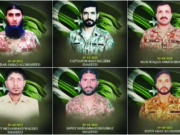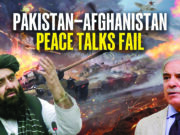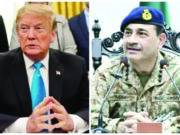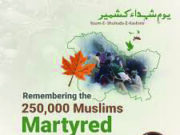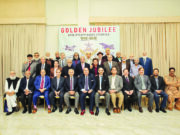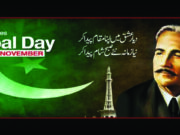The relations between Pakistan and Afghanistan are deep-rooted in history, culture, and language. The people of both countries share centuries of brotherhood and common traditions. However, current political and security challenges have made these relations complex for decades.
In the 1980s, when the Soviet Union invaded Afghanistan, Pakistan played a key role as a frontline state. With the help of the United States and other Muslim countries, Pakistan provided training, weapons, and shelter to Afghan Mujahideen fighting against Soviet forces. During this period, Pakistan faced immense political, economic, and social pressure.
As a result of this war, millions of Afghan citizens migrated to Pakistan. Out of humanitarian compassion, Pakistan generously hosted around 3 to 4 million refugees—many of whom remain in the country even after forty years. Although the presence of refugees adversely affected the economy and society, Pakistan continued to host them in the spirit of Islamic brotherhood, setting a remarkable example of solidarity.
However, after the tragic events of 9/11, a historic shift occurred. Under international pressure, Pakistan allowed NATO forces to use its territory during the U.S.-led campaign against the Taliban in Afghanistan. This decision once again brought Pakistan close to war, resulting in the loss of countless brave soldiers and civilians and plunging the country into a severe internal security crisis. In this war, Pakistan suffered the greatest losses.
Among the main factors behind the current tension between
Pakistan and Afghanistan are border disputes, cross-border terrorism, smuggling, and political mistrust. Both sides
continue to exchange accusations and blame each other for losses of life and property.
Let us now look at another side of the picture. In recent years, India has sought to increase its political and economic
influence in Afghanistan.
For both Pakistan and Afghanistan, it is essential to reduce disputes through mutual dialogue, confidence-building, and joint security measures. Border peace, trade relations, and joint projects can create stability in the region. The Islamic world, especially the Organization of Islamic Cooperation (OIC), should play an active role as a mediator to establish peace between the two nations.
Following the rise in border tensions between Pakistan and Afghanistan, Saudi Arabia and Qatar have made diplomatic efforts to normalize relations between the two countries. According to Arab media, the leaderships of Riyadh and Doha have contacted Islamabad and Kabul, urging them to take steps toward a ceasefire and confidence building. Saudi Arabia emphasized that both nations should resolve their differences through dialogue under the principles of Islamic brotherhood and mutual security, while Qatar offered to act as a mediator.
The future of these two nations—Pakistan and Afghanistan—is deeply interconnected. If relations are built on mutual interests, dialogue, and Islamic brotherhood instead of hostility and distrust, not only both countries but the entire region and the Muslim Ummah can achieve peace and prosperity. A policy founded on joint security, trade cooperation, and humanitarian compassion guarantees long-term stability in the region.
“This is the purpose of creation; this is the secret of being
Muslim—
The unity of hearts and the abundance of love.” (Allama Iqbal)
In recent years, India has tried to strengthen its political and economic influence in Afghanistan. It has developed close ties with Afghan governments and invested in various development projects, roads, hospitals, and educational programs. According to Pakistani security experts, India uses these relations to serve its strategic interests, aiming to keep pressure on Pakistan’s western border.
Pakistan is not in a position to add another enemy; hence, every step must be taken with great caution. Our connection with Afghanistan is not merely a border issue—it is a bond of faith. We follow the same religion, a religion that teaches love, unity, and brotherhood. Yet, political interests, personal gains, and the desire to dominate one another have blinded us from reality. Sadly, Muslims have often fought among themselves, weakening their collective strength. If this continues, the loss will not belong to one nation—it will be the loss of both Pakistan and Afghanistan. Remember, those dying in Afghanistan are Muslims, and those dying in Pakistan are Muslims too.
If only all Muslim countries could understand this reality—that non-Muslims, when united, will never decide in our favor. Muslim nations must rely on their own strength, wisdom, and foresight. Otherwise, humiliation will remain their destiny. This has always been the pattern of history and will continue until Muslims use their intellect and recognize their common enemy.
May all Muslims truly understand this message.
“Waan Laysa Lil Insana illa ma’ sa’aa “
That man can have nothing but what he strives for.
